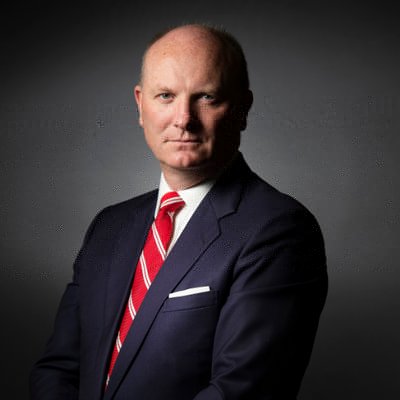
The High Court has ruled that businessman Declan Ganley is entitled to just half of the legal costs he incurred for his challenge against the ban on attending religious services during the Covid-19 lockdowns. Ireland had the longest ban on public worship anywhere in Europe. Similar legal challenges elsewhere succeeded.
Mr Justice Charles Meenan held that the Co Galway businessman had raised points of general public importance in his action, including the balance between the right to public worship and public health.
The Minister’s lawyers had argued that the court should make no orders as to costs, meaning that each side would pay their own legal bills.
The Judge ultimately never heard the case, deciding that it was pointless to do so once the mass-ban was lifted.
Neil Steen, SC, had argued that Mr Ganley should be awarded his full costs against the Minister, and said his client’s case was a straightforward one.
He added that one would have thought the Minister would have had all the material he required to justify the regulations readily available to him, but due to the large volume of material generated by the Minister in response to the action one could infer that there was an attempt to “swamp” Mr Ganley and delay the proceedings.
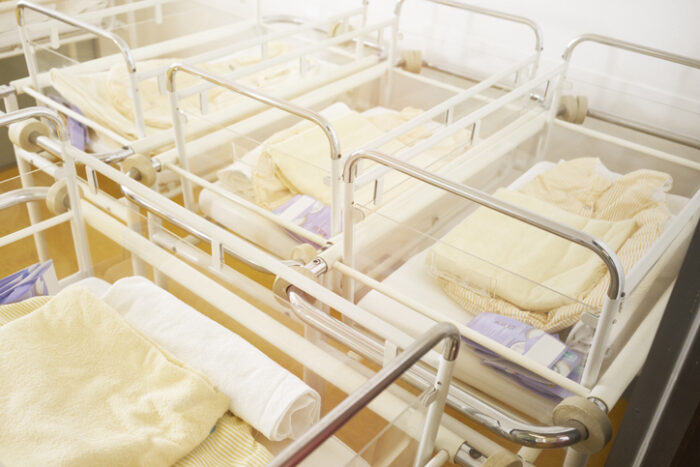
The Minister of State for Disability Anne Rabbitte has said while concerns “continue to circulate” in relation to the potential involvement of the Religious Sisters of Charity in the new National Maternity Hospital, the order will not play any role in the governance or operation of the hospital. Critics say, without evidence, that the congregation will have influence over the hospital.
Ms Rabbitte said there has been further engagement with stakeholders in relation to the draft legal framework for the hospital and “this process will continue as we work towards the finalisation of these legal arrangements”.
She was speaking during a Dáil debate on a motion calling for the compulsory purchase of the site for the hospital at Elm Park in Dublin, which was put forward by Independent TDs Joan Collins and Thomas Pringle, on Thursday.
While the Government has said it will not oppose the motion, it has not changed its position and does not intend to purchase the site.
Instead, it is seeking to conclude a long-term lease – expected to last 299 years – with the St Vincent’s Healthcare Group, owners of the site adjacent to St Vincent’s hospital in Dublin 4.
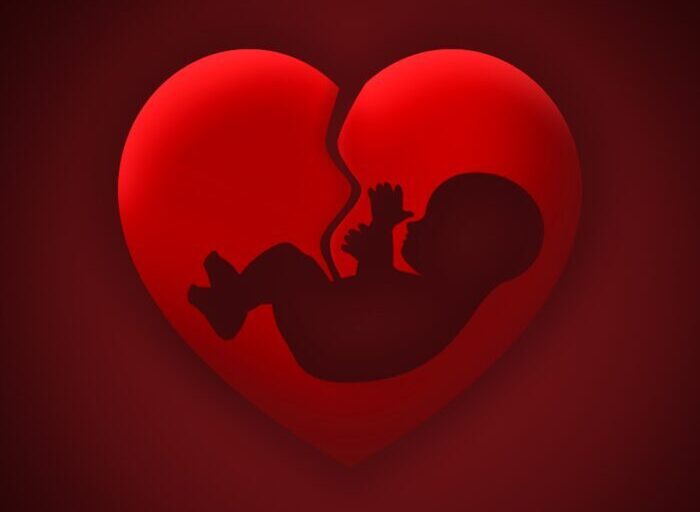
A bill making a father’s financial responsibility to his child and his child’s mother begin when the child is conceived, has been proposed in one US state.
Announcing the legislation, pro-choice Democrat, Forrest Bennett, said “If Oklahoma is going to restrict a woman’s right to choose, we sure better make sure the man involved can’t just walk away from his responsibility.”
Pro-lifers were swift to respond with a resounding, “Yes, exactly!” The pro-life movement, believing as it does that human life begins at conception, has long favored requiring fathers to support their children from that point. Writing at NRO, Alexandra De Sanctis said “We know that many if not most women who have an abortion do so because of lack of support, usually from their partner, and policies such as this one might make it easier for many pregnant mothers to choose life. They’re also good in principle, recognizing as they do that life begins at conception and that both mothers and fathers are responsible for their children from the moment they come into existence”.
But, abortion supporters were less than thrilled with Bennett’s bill. The trouble, it seemed, is that the bill implicitly affirms that human life begins at conception, an enormous concession to the pro-life argument.
In response to the pushback, Bennett was swift to apologise and promise to rework his legislation. “I understand how the language in my message and bill both hurt the cause instead of helping it, and I apologise for not being more thoughtful,” he tweeted.

Almost 80pc of parents of primary school-going children are ‘satisfied’ or ‘very satisfied’ with the school their child is attending, according to a survey. Only 18 per cent of parents felt ‘dissatisfied’ or ‘very dissatisfied’, with no major difference in satisfaction across regional or socio-economic lines. The vast majority of Irish primary schools are Catholic.
In addition, only 4 per cent of parents did not get their preferred first choice of school for their child according to the research from 2019 which has only now been made public. The figure of 4pc belies claims often made by campaigners that over-enrollment in Catholic schools is common and therefore children of non-Catholic parents miss out on places.
The research, which was commissioned by the Catholic Church, also found that there is overwhelming support among parents (78 per cent) for the Catholic Church to have a role in continuing to shape and influence the ethos of schools.
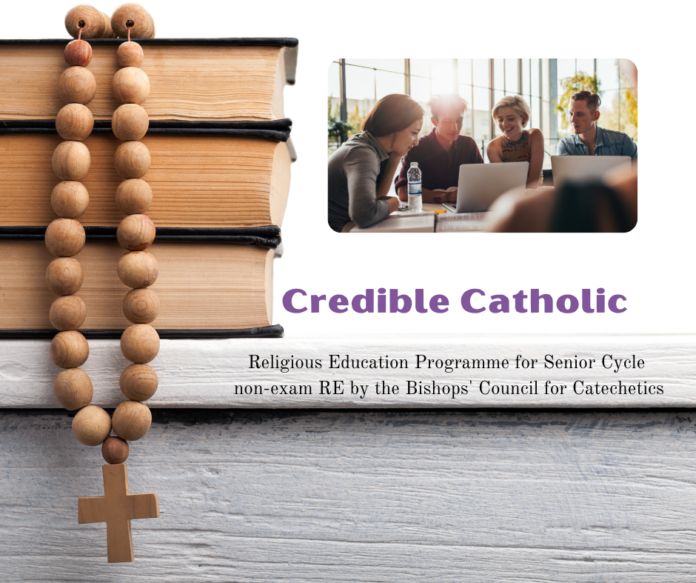
A new religious education programme, showing the compatibility of faith and reason, has been launched.
Bishop Brendan Leahy, Chair of the Bishops’ Council for Catechetics, unveiled “Credible Catholic”, as part of Catholic Schools Week 2022.
The programme aims to “stimulate dialogue, encourage reflection and critical reasoning, foster religious literacy, build community, and nurture faith, and in doing all of these things, to promote student wellbeing”. It is an optional resource for teachers of religious education.
Commenting ahead of the launch Bishop Brendan Leahy said, “Pope Francis often reminds us that education involves learning three languages – the language of the mind, of the heart and of our hands. Credible Catholic is a wonderful programme that quenches the thirst of the mind, expands the outreach of the heart and points in the direction of doing many good actions. I think teachers and students alike will value this programme that responds to Jesus’ call to love not just with our heart but also with our mind.”
An earlier version of Credible Catholic was written and produced by Fr Robert Spitzer SJ and the Magis Centre, based in California, in 2018 and has been almost entirely re-developed for the Irish context, in line with feedback from RE teachers and theological advisors in Ireland.
The programme is free and the multi-media materials can be downloaded from a dedicated website.
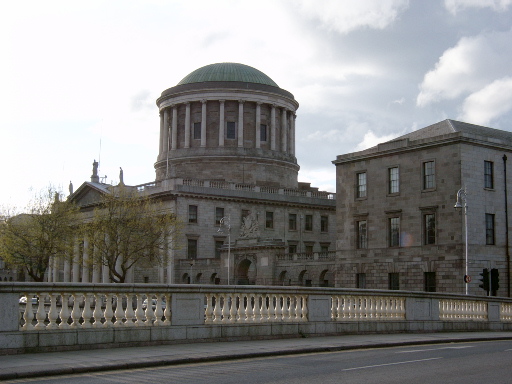
The Supreme Court has ruled that the exclusion of two home-schooled students from the Leaving Certificate calculated grades process in 2020 was an impermissible interference with the constitutional freedom of the family to provide education in the home.
The cases involved two home-school students who were excluded from the scheme but were subsequently awarded grades after winning their High Court case.
The State had appealed the cases to the Court of Appeal and the Supreme Court for clarification of certain legal points.
18-year-old Elijah Burke from Co Mayo was home-schooled by his mother, Martina – a registered teacher, but she was deemed to have a conflict of interest in providing estimated marks for the calculated grades process.
The second case involved a 17-year-old girl who was home-schooled mainly by her mother, with assistance from her father and private tutors – none of whom were registered teachers.
In its ruling, the Supreme Court held the Calculated Grades Scheme (CGS) was clearly an exercise of the executive power of the State. The court held there was “an undoubted interference” in the constitutional rights of the students and the justification offered by the department was insufficient.
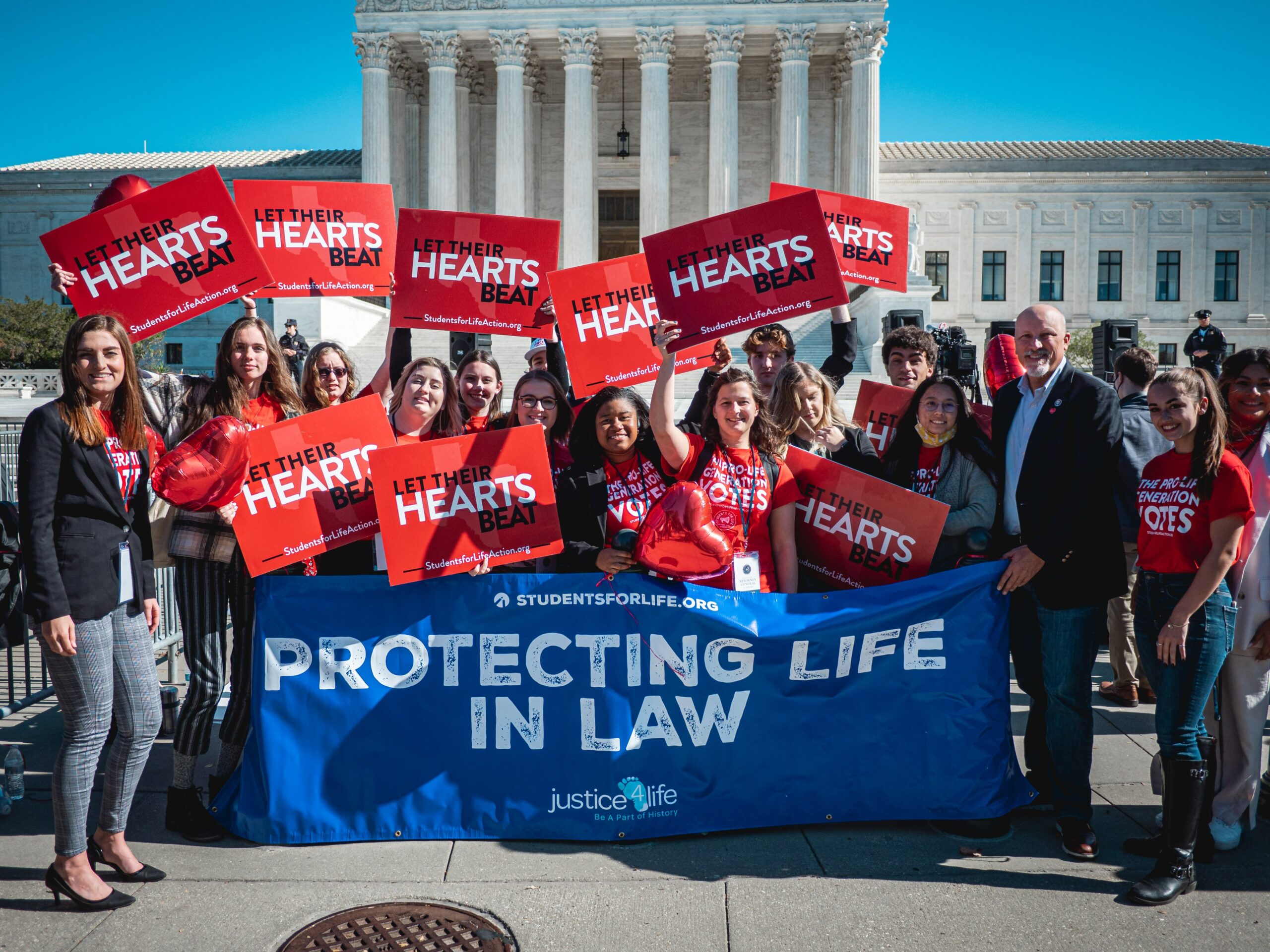
Huge crowds marched in Washington DC last Friday to protest the ongoing Roe-v-Wade abortion regime imposed on all fifty states by the US Supreme Court in 1973.
Meanwhile, that same morning, the Court released a judgement refusing to stop a Texas law that bans most abortions after a foetal heartbeat has been detected, while in the White House, President Joe Biden reaffirmed his commitment to uphold an unrestricted licence to abortion.
On the streets, participants returned in large numbers to the annual March for Life, braving frigid weather one year after the event’s pandemic-related virtual shutdown to demonstrate solidarity for the unborn at the start what could be a decisive year for the pro-life movement.
Billed as the “largest human rights demonstration in the world,” the daylong gathering began tentatively with the ongoing coronavirus crisis, coupled with tightened COVID-19 restrictions in the District of Columbia, keeping some regulars at home. But by the start of a mid-day, pre-march rally, headlined by a passionate speech by “Bible in a Year” podcast star Father Mike Schmitz, the size of the crowd had swelled into the tens of thousands, resembling a typical year’s turnout.
But this year’s march was anything but typical. The possibility that the country’s highest court later this year might strike down the landmark 1973 Roe v. Wade decision that legalized abortion nationwide — and sparked the first March for Life 49 years ago — lent a festive, anticipatory air to the day’s rituals, culminating in a walk up Constitution Avenue to the steps of the Supreme Court.

Respect for all made in the image and likeness of God is a key characteristic of any Catholic school, according to the Bishop of Meath, Tom Deenihan.
Speaking at the launch of Catholic schools week, he paid tribute to the teachers working in schools, mentioning in particular Ashling Murphy who was tragically killed two weeks ago.
Speaking in Mullingar, the Meath prelate said a Catholic school must be about people as they are in the here and now with all students treated equally, “and if it were to be biased at all, would be biased in favour of the weak”.
“That is why Catholic schools are inclusive. Inclusion is not just about religious denomination. Inclusion must also take nationality, ethnicity, socio-economic background and ability into consideration. When these five criteria are taken into consideration, I would challenge anyone to tell me that Catholic schools are not as inclusive as any other type of school.”
“A good education, a Catholic education, is not a preparation for capitalism or a narrow narcissistic and selfish view of life but rather one of compassion, service, respect and using ones talents and opportunities.”, he said.
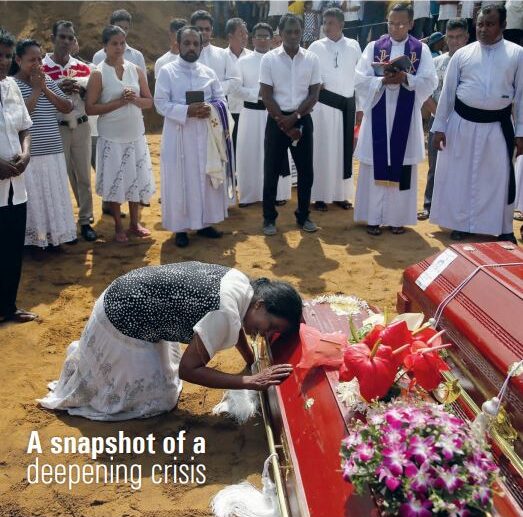
The year 2021 saw the worst persecution of Christians in history, according to the 2022 World Watch List released last week by Open Doors.
The grim global statistics highlight how more Christians face violent aggression because of their faith than any other religious group, with over 360 million Christians living in places “where they experience high levels of persecution and discrimination.”
Over the course of the past year, an astonishing 5,898 Christians were killed for their faith, the Watch List reveals, while 6,175 believers were detained without trial, arrested, sentenced or imprisoned and 3,829 Christians were abducted.
The killing of Christians in 2021 increased by nearly one quarter (24 percent) over the 2020 figure of 4,761 — which was already extraordinarily high — meaning that now more than 16 Christians die every day for their faith in Jesus.
Along with the personal violence against Christians, 5,110 churches and other Christian buildings were attacked or profaned during the year as well, Open Doors found.
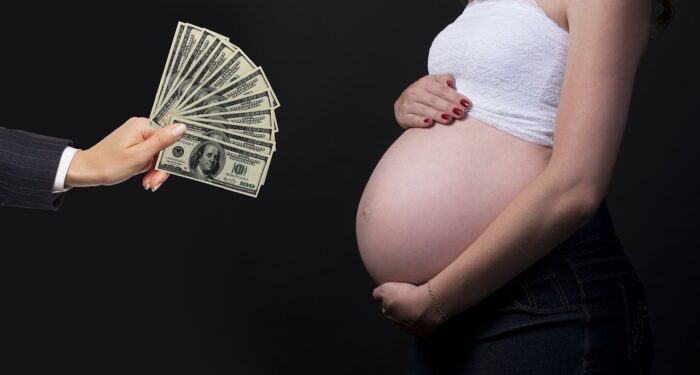
An Oireachtas committee is to be set up to examine international surrogacy and make proposals for new laws in the area. In practice, this will likely mean recognising commercial surrogacy which many countries ban as a form of baby-buying.
At present in Ireland there is little regulation of surrogacy, and under Irish law the surrogate mother, who gives birth, is considered the legal mother of the child. Currently most surrogacies involve parents entering into commercial arrangements with women outside of the State, often from countries such as Ukraine.
The special committee will be tasked with producing a report within three months, setting out recommendations for the regulation of the area, at which point Ministers will consider what legal changes may be required.